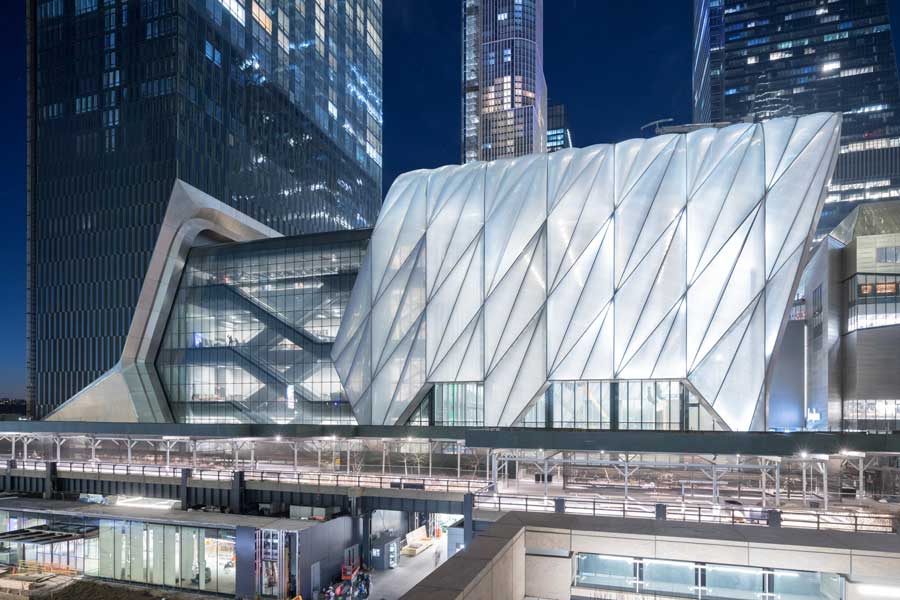AMERICAN THEATRE: In English the word theatre refers both to the art form and to the place in which it is being presented. Both meanings, and the connection between the two, are currently being radically redefined. And that redefinition is reflected in the buildings themselves.
“I do not even know what state-of-the-art means anymore,” confesses Joshua Dachs, a principal of the New York-based theatre design firm Fisher Dachs Associates, currently involved in projects under construction around the world.

3 comments:
First of all, buildings are expensive! Well duh, but there are so many theater and entertainment venues already so to create a new one just adds to the awe of how much money goes into this industry. Even with all the venues available they somehow always seem to be full! With the new Shed space, I liked to read that it is adaptable to different types of performances. When people create multi-functional buildings it brings more opportunities and experiences into the area where the building is located. By creating places that attract the performing arts you bring more diversity and opportunities to the city the building occupies.
It is very interesting to hear that they are putting a performing arts center where the world trade center used to be. To put a performance space on such an important piece of area must be very inspiring and humbling for the arts community. “There’s no way you can start up on that sacred ground, and not have it inform every choice,” Rauch avers. Just think about all the stories that could be shared were such a devastating event happened.
I truly wonder why the building boom is happening now. It is explained in the article but what makes this time the right time to create more arts communities. Is technology forcing the arts community to expand right now and create a dramatic shift in the performing arts industry?
Almost everyone I've worked with in theatre can always find a hundred things wrong with the theater they work in, so it doesn't surprise me that people are fronting millions of dollars to develop the most sophisticated theatre spaces they can muster. Ultimately, though, the thing that sticks out the most in this article is Kevin Moriarty's take on modern production: "The next wave is going to be flexible theatre spaces, which have a large amount of technology supporting them". When designers start a project, many don't have the ground plan or section of the theater they're working for. They start off with blank sheets of paper and start their research and storyboard process. So why don't we offer that same "blank canvas" physical space to perform in? The traditional proscenium-style performance structure is growing obsolete, especially when comparing to other forms of entertainment available today. The big catch, though, is money. There is a lot you can do in an empty warehouse, but the money you would need to provide total flexibility would be astronomical. However, this is one of the few ways you can ensure your installations won't be obsolete in the next decade. I'm always excited to hear and see productions in unique venues, and am curious to see where the future of theatre spaces goes.
The article talks about how to build a new theatre that stands out, having an answer to building The Shed. I think building spaces like the shed is great because collectively the arts are much stronger together. This is best shown with the idea of unions where collective bargaining is what makes unions so strong. The discussion about flexibility is also important because the more flexible, space is, the cheaper it is for things to do more things. It also means there can be more revenue from different things. I understand why this article talks about the difficulties of building new theatres but I don’t think this fact negates the idea that we are in the midst of a new theatre building boom. I think what would really spark this boom is doing what some cities do for films and create tax incentives. At yesterday’s talk, Charlotte St. Martin talked about how hard it was to build a new Broadway theatre, citing one of the reasons as no tax incentives. Maybe this would be one way to solve the high cost issues related to building new theatre complexes.
Post a Comment